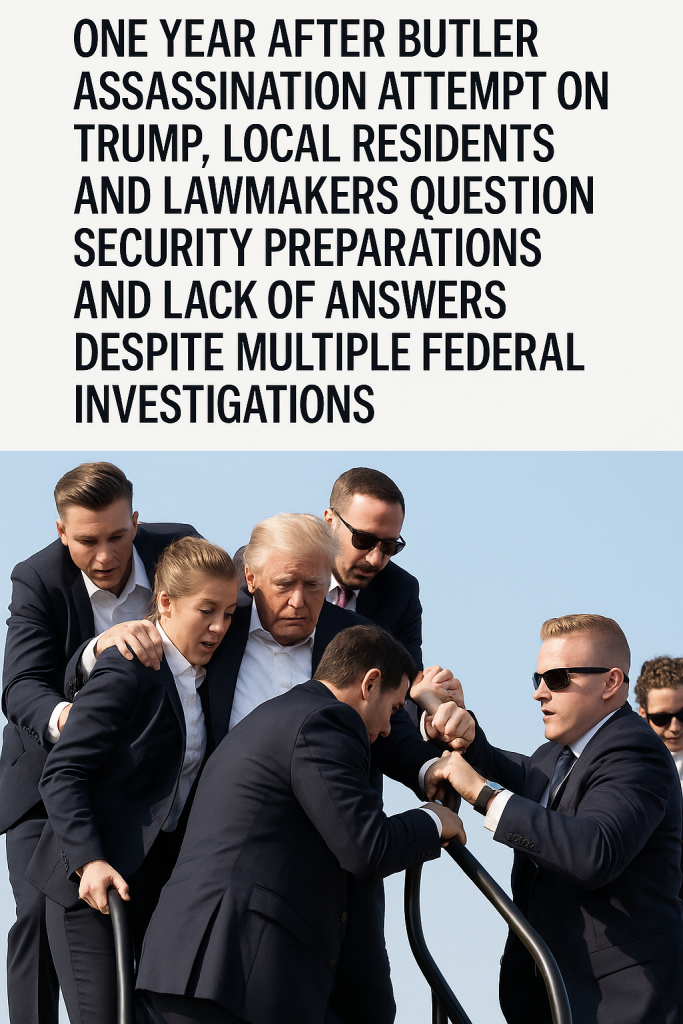One year has passed since the shocking assassination attempt on former President Donald Trump in Butler, an event that rattled the nation and thrust local security preparations into the spotlight. Despite multiple federal investigations launched in the immediate aftermath, both residents of Butler and local lawmakers express growing frustration over what they describe as a troubling lack of transparency and unresolved questions surrounding the incident.
On a tense day last year, the attempt on Trump’s life shook the quiet community of Butler, highlighting vulnerabilities in security protocols for high-profile events. Since then, federal agencies have conducted exhaustive inquiries aimed at uncovering the motivations of the assailant, evaluating intelligence failures, and reassessing protective measures. However, official updates have been sparse, fueling speculation and concern among local citizens who live daily with the event’s harrowing memory.
Security concerns remain front and center as Butler residents recount feeling unprepared and exposed long after the incident. “We were promised improvements, but it feels like we’re still waiting,” said a longtime community member who requested anonymity for fear of retaliation. Many locals question why there was an apparent security gap during such a high-risk appearance, noting that warnings and intelligence about potential threats were allegedly overlooked.
“If this could have happened here once, it could happen again,” warned a Butler city council member during a recent public forum. Lawmakers have since urged for more comprehensive disclosure from federal authorities about the steps taken to enhance protective operations, not only for Trump but for other dignitaries visiting the region.
Federal officials maintain that security protocols have been rigorously reevaluated and fortified following the incidents, emphasizing that safeguarding public figures remains a national priority. Yet, the persistent silence on critical details — including how the assailant breached initial security layers and whether intelligence lapses occurred — continues to generate mistrust.
Community groups have organized vigils and town hall meetings, demanding transparency and accountability. At these gatherings, residents push for independent oversight of security agencies and clearer communication regarding risk mitigation efforts. Some have called for congressional hearings to hold responsible parties accountable and to ensure lessons learned translate into concrete prevention strategies.
Meanwhile, political analysts note that the Butler attack has fueled broader national conversations about the challenges of securing prominent political figures amid a climate of increasing political polarization and the rise of domestic threats.
Looking ahead, Butler’s residents and representatives insist on a thorough public reckoning with the incident. “We need to understand what went wrong, and we need to know what’s being done so it never happens again,” a local lawmaker stated in a recent interview. With the anniversary underscoring unfinished business, the community’s demand for answers grows louder — a call that federal agencies must balance with national security considerations.
As the one-year mark passes, Butler remains a potent reminder of the fragile nature of political security. The town’s experience highlights the critical importance of robust preparedness, transparency, and communication between federal bodies and the communities they serve.



